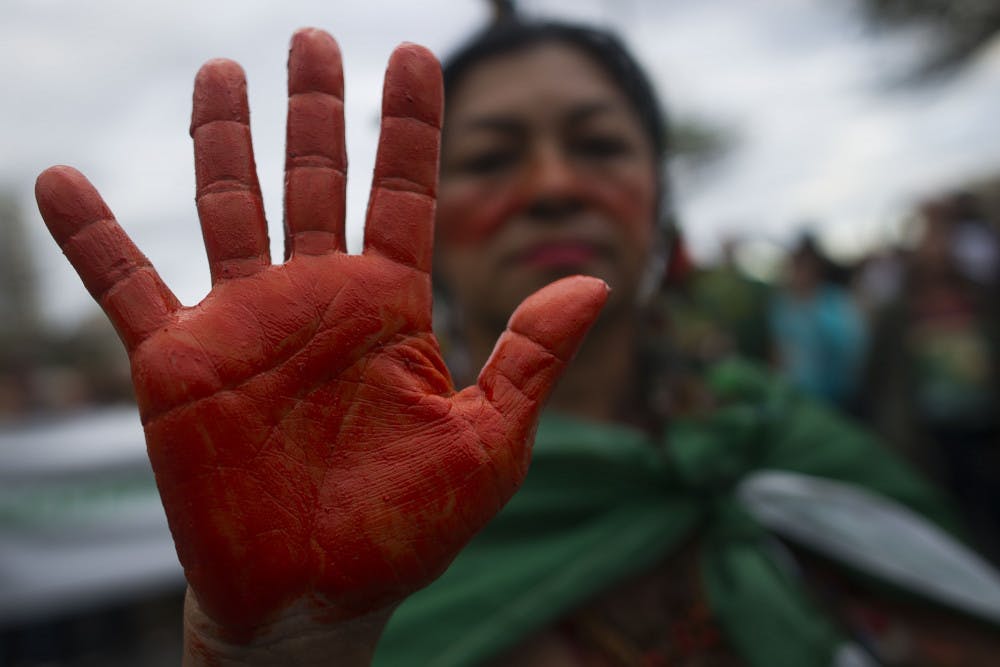By now, you’ve likely seen it all over the news and your social media feeds, but I’ll give you a quick reminder anyway: the Amazon rainforest is on fire.
According to Brazil's National Institute for Space Research, there have been 72,843 reported fires in the Amazon since the beginning of 2019, which amounts to an increase of 80 percent compared to 2018. This is a big deal. The Amazon is home to thousands of species of animals, around 300 tribes of indigenous people, and it is known as the Earth’s lungs for producing 20 percent of the planet’s oxygen supply. Before we go further, it should be emphasized that these fires aren’t natural. Natural fires are rare in the Amazon, and much of the burning areas are lands that have already been cleared for agricultural use.
So if it’s not nature, what is responsible for these fires? It’s not actually a question of ‘what’ is responsible, but ‘who.’ These are man-made fires. Brazilian President Jair Bolsonaro, nicknamed “captain chainsaw,” has given companies the green light to encroach on the Amazon. As Vox explained, Bolsonaro, who was elected in 2018, is far from a friend to the Amazon, slashing funding for the agencies that protect the Amazon and firing a top science official who defended statistics showing an 88 percent increase in Amazon deforestation. With a supportive president, companies and farmers in Brazil are clearing more land for cattle ranching and logging, and because these groups often burn land in order to clear it for economic use, it is likely this is how the 2019 fires have started.
So, what has been Bolsonaro’s response to a crisis that he plays a large part in creating? At first, he denied the fires at all, even suggesting environmental groups had set them to make him look bad. He later backtracked on that claim, but then he tried to discourage the world from looking at the fires, saying they were an “internal matter.” Bolsonaro arguing for national sovereignty and self-determination is rather hypocritical considering the president’s poor record on the indigenous people who actually live in the Amazon and his lack of respect for their self-determination. Even putting aside that fact, however, Bolsonaro is wrong: Everyone should be concerned about the Amazon fires.
By considering the Amazon fires to be an internal Brazilian matter, Bolsonaro is treating the Amazon as if it’s Brazilian property. However, as the Amazon has such an important role in humanity’s oxygen supply and biodiversity, it ceases to be the sole property of just one country. Other countries also have a stake in the Amazon’s survival. That’s something leaders like Bolsonaro have difficulty understanding. Bolsonaro sees the world as zero-sum game where Brazil must come first, but the world is more complicated than that. With things like the Amazon, all nations and peoples from around the world are affected.
Because all nations benefit from the Amazon, they should all come together to protect it. Not only should the international community put pressure on Bolsonaro’s government to step up its environmental protection to prevent future blazes, but there should also be a shift in thinking. We need to consider crucial ecosystems like the Amazon as the responsibility of the world as a whole instead of one individual nation. People should keep spreading the news of the Amazon fires, and if it’s feasible, reduce their patronage of companies that profit off the destruction of the Amazon (mainly in the logging and meat industries). Things may seem bleak, but if we come together now, we can preserve the Amazon rainforest for future generations.
Jason Zappulla is a UF history senior.
An indigenous woman shows her hands painted in red, representing blood, during a protest in defense of the Amazon while wildfires burn in that region, in Rio de Janeiro, Brazil, Sunday, Aug, 25, 2019. Experts from the country's satellite monitoring agency say most of the fires are set by farmers or ranchers clearing existing farmland, but the same monitoring agency has reported a sharp increase in deforestation this year as well. (AP Photo/Bruna Prado)




